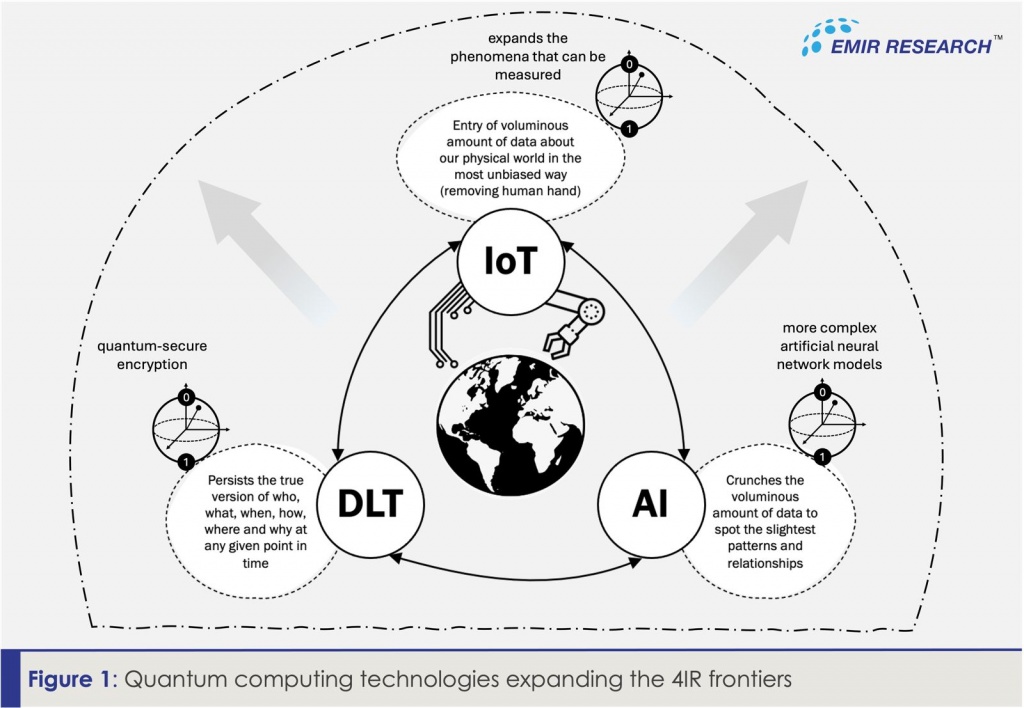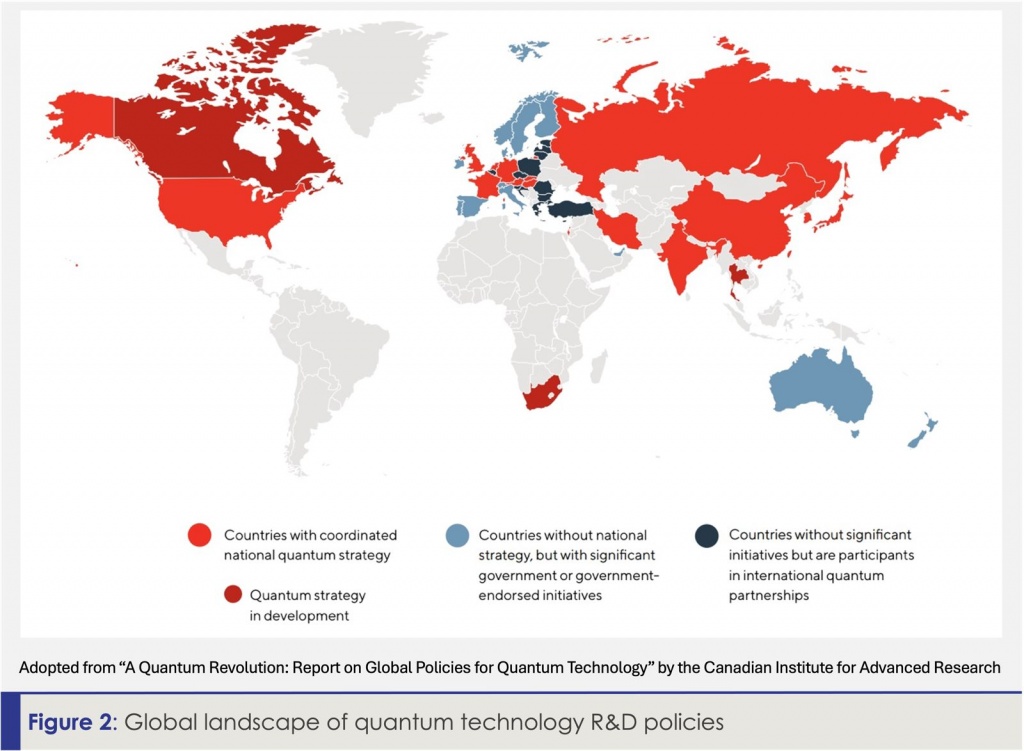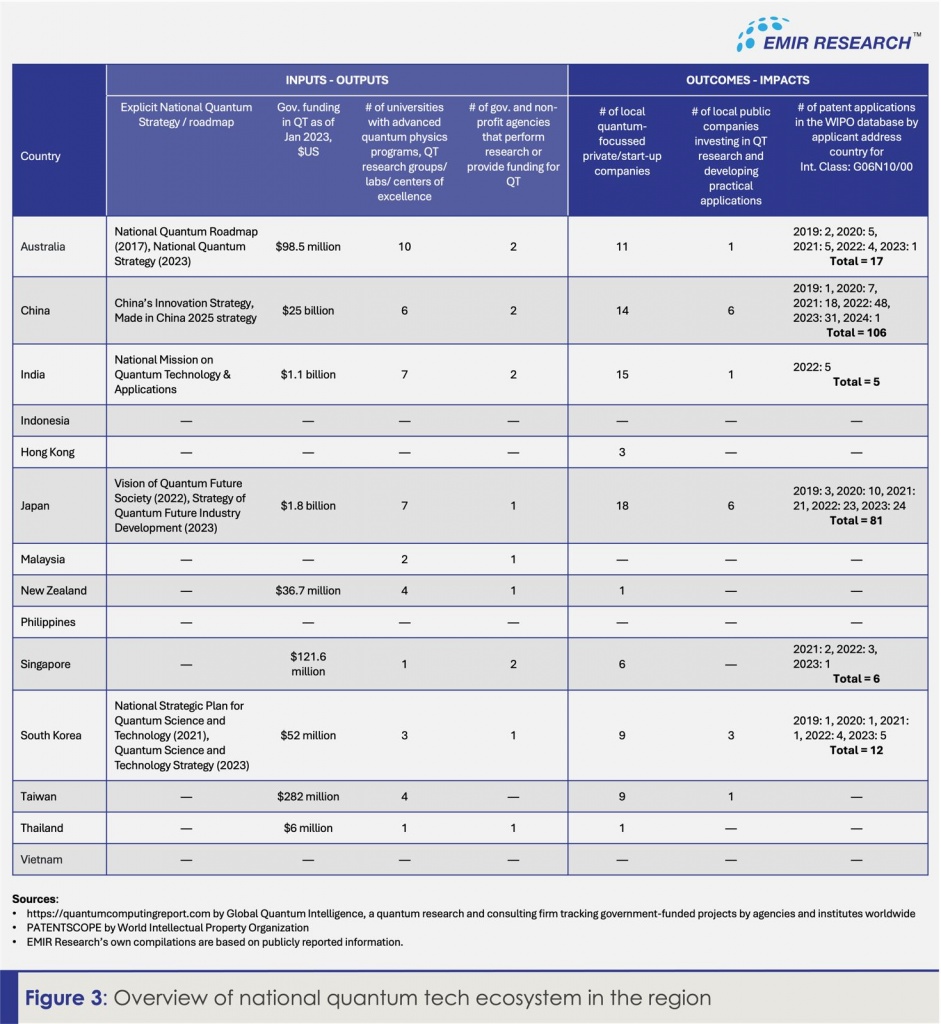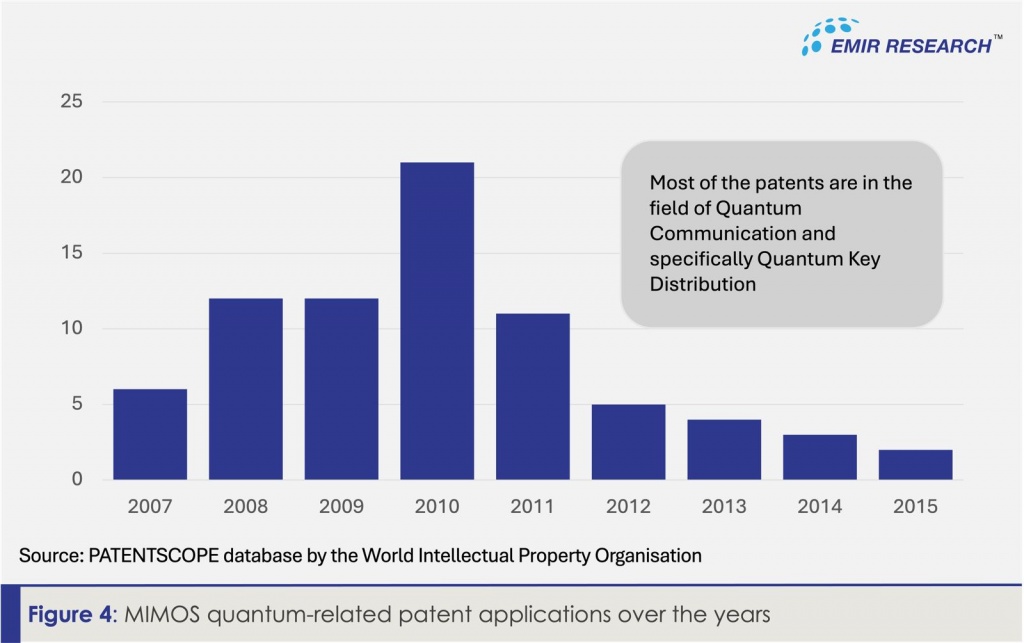
Published by AstroAwani, Digital News Asia & The Edge Malaysia, image by AstroAwani.
Leveraging quantum technology (QT) is crucial for national security, the digital economy, and sovereignty already in the immediate future. Quantum physics laws suggest not only a significant leap in communication efficiency and computational power but also a profound transformation in how and through which we communicate. This breakthrough greatly extends the scope of measurable phenomena, hinting at possibilities beyond the physical realm. For the first time in human history, teleportation is now within reach.
Therefore, just as the matter of National Food Security, National Quantum Security urgently demands greater attention and explicit, well-coordinated efforts to have it right, in a sovereign way, for the sake of Malaysians.
Of course, QT is of immediate interest to big techs exploring 4IR frontier technologies like AI, IoT, and distributed ledgers.
However, its potential also extends to SMEs employing similar concepts for limited-scale digital transformations in their processes.
4IR frontier technologies drive cyber-physical systems, or “smart networks,” autonomously collecting unbiased data through sensors (without human hand), analysing patterns, finding solutions, and applying them to the physical world (again mostly without human hand). QT is positioned to significantly elevate these systems’ capabilities, effectiveness, and efficiency (Figure 1).

QT is crucial for cyber-physical systems due to the approaching limits of Moore’s Law, increased demand for greatly enhanced AI computing, and new information security risks posed by QT, necessitating advanced protection systems.
Generally, QT showcases its prowess in any business tasks related to the following: complex pattern recognition (deep machine learning), modelling, optimisation, simulation, and prediction for the behaviour of complex systems and processes, such as complex molecular systems, natural phenomena, chemical reactions, and other physical processes.
Therefore, at first glance, business sectors set to gain from QT include banking and finance (for fraud detection, portfolio optimization, market uncertainty modeling, derivatives pricing, and risk analysis); pharmaceuticals, chemicals, batteries, and materials (accelerating development through quantum modeling for efficient drug discovery and personalized medicine); and logistics, aviation, automotive (for optimizing routes and scheduling).
All the above are complex computational challenges hindered by bottlenecks and intractable problem classes on classical hardware, especially when data scales exponentially or faces combinatorial explosions. Quantum approaches leverage inherent parallelism, allowing navigation through multiple possibilities simultaneously. This yields exponential speedup potential, offering unprecedented momentum in providing solutions compared to classical counterparts.
Quantum algorithms for data processing lower processing costs, by enhancing efficiency or minimizing the utilisation of resources.
More broadly, in any business (big or small) where there is a step-by-step process, QT can enhance speed and efficiency by at least a few percentage points. While it may seem modest, even a small percentage gain translates to significant savings in both money and resources for large industrial production and, more so, for SMEs. Additionally, process optimization positively impacts the environment by reducing emissions from production and waste.
The potential of quantum algorithms to achieve accelerations hundreds of times beyond classical ones signals a paradigm shift, unleashing profound innovation and competitiveness potential, capable of disrupting industries and markets, creating new sectors, and rendering existing players obsolete—a fate experienced by many entities throughout history in the wake of technological progress.
Furthermore, QT poses significant risks to established cybersecurity protocols.
While our SMEs still have relatively low digital transformation rates, they universally adopt ICT for data storage, usage, and transmission.
In the current post-quantum era, digital assets and systems are vulnerable without the adoption of post-quantum cryptography. Even without widespread commercial use of quantum computers, data faces risks from potential “store-now-decrypt-later” attacks. Consequently, sensitive data, regardless of business size, is already at risk, emphasizing the urgent need for proactive measures to enhance overall security, integrity, and reliability.
Meanwhile, the affordability of emerging technology solutions is always a big obstacle on the way to their successful adoption by businesses, especially by SMEs and particularly by small and micro enterprises.
Therefore, it is understood that for the foreseeable future, access to QT by SMEs would be only feasible through the cloud (Quantum Computing as a Service). If such cloud services are not available by the local quantum-focussed companies or research hubs (if any), then Malaysian businesses could find themselves solely dependent on quantum-focussed MNCs heralding a new level of digital colonisation for our nation and perpetually weakening currency. At the same time, the government will be compelled to resort to conventional subsidy mechanisms to foster the adoption of quantum computing power among SMEs. Such a patchy approach might include (but is not limited to) government grants, soft loans, tax credits or deductions, or accelerated depreciation schedules for quantum computing-related assets. These initiatives aim to alleviate the financial strain on SMEs, facilitating their investments in quantum computing initiatives, including supporting staff training programs.
However, to maximise economic and national sovereignty benefits, there is a need for a very systematic coordination of resources nationwide in the form of an explicit National Quantum Strategy with more considerable, versatile, and sophisticated (due to transformative power to amplify the outcomes and impacts for the nation per unit of resource spent) investments —beyond regular science-funding and adoption-subsidies mechanisms.
According to “A Quantum Revolution: Report on Global Policies for Quantum Technology” by the Canadian Institute for Advanced Research, as of 2022, at least 46 countries have already undertaken a more or less systematic approach to funding QT adoption (Figure 2). Unfortunately, Malaysia is completely blank on this map.

In 2006, Malaysia established the National Cyber Security (NCSP) strategy for safeguarding the country’s critical information infrastructure with no specific attention to quantum, even though already at that time, there was an ongoing buzz within the scientific community surrounding QT, evident from the explosion of QT-related patent applications.
However, even more recent relevant policies such as the National Fourth Industrial Revolution (4IR) Policy, Malaysia Cyber Security Strategy (MCSS) 2020-2024, Malaysia Digital Economy Blueprint (2021), or Malaysia Artificial Intelligence (AI) Roadmap (2021-2025) do not explicitly mention quantum development or any specific initiatives or efforts in that direction.
Figure 3 provides more details on the voids in comparison to regional counterparts.

It’s crucial to note that the data presented in Figure 3 is compiled from publicly available sources.
For example, there’s a noticeable absence of any homegrown quantum-focused startups from Malaysia. In contrast, such startups in quantum-leading countries in the region (e.g. Australia, China, Japan, Singapore, and South Korea), have abundant mentions in sources like the Global Brand Database and various public reports on the global quantum ecosystem.
Also, several prominent Malaysian tech companies, particularly those operating in sectors directly impacted by quantum technology, such as banking and finance, chemicals, utilities, logistics, and automotive industries — including Axiata Group, CIMB Group Holdings, Telekom Malaysia, Tenaga Nasional, Petronas among others — are expected to demonstrate substantial interest in exploring quantum technology by now, as part of their broader business strategies. However, explicit indications of such investments are not readily available in the public domain.
There are some quantum-focused fundamental scientific endeavours and research labs led by very dedicated enthusiasts among academics and students at Malaysian universities. However, unfortunately, these initiatives, at times even with global recognition, lack sufficient interest, support, and coordination from the government or industry, while Malaysia reportedly only “aspires to build its own quantum computer” (AAPPS Bulletin, 2023 33:32) and, at the moment, contributes to developing superconducting quantum computers at foreign centres of excellence, applied R&D centres, and innovation hubs in countries like Singapore, Japan, and their likes instead of vice-versa.
Despite quantum was not given sufficient attention in the NCSP strategy in 2006, the Malaysian Institute of Microelectronics Systems (MIMOS) established a research cluster focussing on home-grown quantum communication (QComm) systems. Even though the research appears to have dried up over the years (Figure 4), at one time, Malaysia’s significant contribution to the QComm field was well-recognised by the international community.

This begs the question: what has happened over these years? And come the year 2023, Malaysia has to ink an MOU with a foreign entity to fortify the nation’s digital terrain against the ever-evolving cyber threats.
Obviously, some serious gaps have developed over these years that deserve urgent attention and assessment by the current administration.
Certainly, there may be additional quantum-focused initiatives underway. Nonetheless, the level of visibility of these efforts in the public domain serves as a significant indicator of their seriousness, scale, and nationwide coordination.
Also, upon a visual survey of Figure 3, the correlation between input-output and outcome-impact columns is very obvious and profoundly underscores the urgency for Malaysia to also spearhead the efforts towards the development of a robust local quantum ecosystem, empowering domestic businesses, and reducing dependency on external sources by following the lead of other countries taking quantum seriously.
The quantum race is fast and furious. As the speed of the technological process has been accelerating exponentially, quantum computers might be here faster than we think. The good question: is Malaysia prepared to meet this new era while maintaining any resemblance of digital sovereignty?
Dr Rais Hussin is the Founder of EMIR Research, a think tank focused on strategic policy recommendations based on rigorous research.

